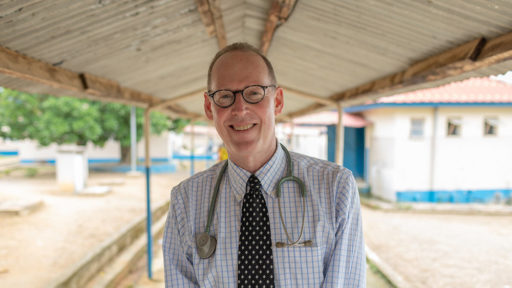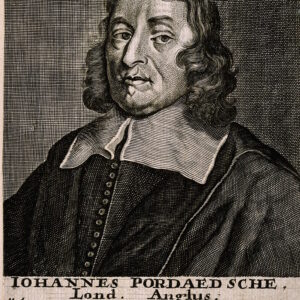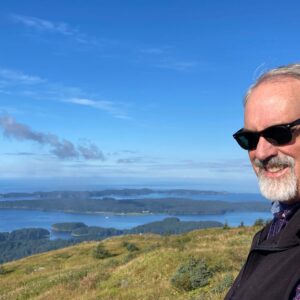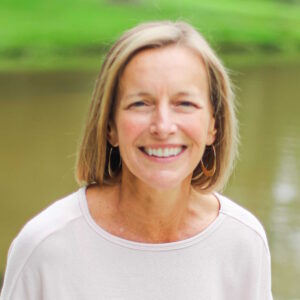Paul Farmer died in his sleep Monday, February 21, and we will not see his like again soon. Dr. Farmer, a physician, medical anthropologist, author, and tireless champion of the world’s poor had been working in Butaro, Rwanda, at a hospital he helped build. For someone who was never quite comfortable anywhere but among fellow human beings in urgent need, it was a fitting place to end an astonishingly fruitful life. The world’s loss is profound, but his legacy remains in the work of the many health care workers he taught and inspired, in the thousands of women, men, and children who benefitted directly or indirectly from his efforts, and in a moral vision that transformed global health, often against standard bureaucratic wisdom that “good enough care” for the planet’s “bottom billion” was a laudable, if seldom achieved, goal.
Raised in a lower middle-class Catholic family living at various times in a refitted bus and a boat moored in a Florida bayou, Farmer first met Haitian immigrants while picking oranges, a summer job he shared with his father and two brothers to make ends meet. By the time Farmer graduated from college with a degree in anthropology, he had learned French and set his sights on medical school. He was also reading Latin American Catholic liberation theologians like Gustavo Gutiérrez and Leonardo Boff. After Salvadoran Archbishop Oscar Romero’s assassination in 1980, Farmer decided that a Christian has no choice but to be on the side of the poor. In 1983, he traveled to Haiti and discovered firsthand what “institutionalized sin” looked like. While working toward doctoral degrees in medicine and anthropology at Harvard, he somehow found time to build a new hospital in Cange, a site on Haiti’s impoverished central plateau recommended to him by a local priest. As he later told author Tracy Kidder, “The fact that any sort of religious faith was so disdained at Harvard and so important to the poor…made me more convinced that faith must be something good.”
You can learn much more about Farmer’s education and early career in Kidder’s Pulitzer Prize winning book, Mountains Beyond Mountains. There, you’ll read how he concluded (borrowing the language of liberation theology) that infectious disease makes its own “preferential option for the poor”; that addressing individual medical conditions apart from a community’s social determinants of health ensured failure; and that “the idea that some lives matter less is the root of all that is wrong with the world.” You’ll learn how he founded Partners in Health, whose conviction that the poor deserve the best possible care slowly overturned reigning assumptions about “cost-effective care” by demonstrating that rural, imprisoned, or displaced patients with tuberculosis or HIV could survive their diseases when properly treated. You can read Farmer’s own books on U.S. hypocrisy toward AIDS-wracked Haiti, the systemic causes of global health inequities, or the designed-to-fail approach of much so-called humanitarian aid during the 2014 Ebola epidemic in West Africa. You can contemplate his profound conversations with Peruvian liberation theologian, Gustavo Gutiérrez, collected in one volume as In the Company of the Poor. What I’d like to share here, however, is what I knew of Paul Farmer, the person.
I didn’t know Paul Farmer particularly long or well, but what I saw and heard in our brief encounters left a lasting impression. He had a special intensity that drew you in. Few who entered that gravitational field left unchanged. When not speaking to a patient or student, he was in constant motion, focused on the project at hand, knowing that five or six other going concerns would need his attention soon enough. He surrounded himself with similarly committed colleagues who thrived on and reciprocated his energy. His wife and children learned to live with his frequent absences. Yet when he spoke to someone face to face, he behaved as if in the presence of the most important person in the universe. It was an attitude I tried to adopt in my own medical practice—with limited success.
He faulted the medical-industrial complex for its many failures while insisting that the medical provider take responsibility to address all barriers to an individual patient’s care. He held fellow health care professionals to the highest standards. He was implacable when fighting bureaucratic inertia, but never lost sight of another’s humanity. One of Farmer’s lifelong collaborators, Jim Yong Kim, remembers Farmer presenting him with a simple idea, “Let’s start a nonprofit organization that has only one rule: Everybody has to be kind.” When working a room of potential donors—Partners in Health dreamed big, worked lean, and always needed cash to fund its worldwide efforts—he could sniff out money at twenty paces. I saw him at his charming best among the well-heeled who might contribute, a challenge for someone who had so little concern for his own comfort or status.
During a visit to Cincinnati Children’s Hospital in 2009, Farmer asked if he could meet with students, residents, and educators interested in global health. We ended up gathering at my house for a buffet dinner, catered by a local restaurant run by Catholic sisters and staffed by women looking to make a living off the street. The food was good, the company delightful, and the excitement among those who had yet to meet our guest of honor was palpable. As I knew he would, he set everyone at ease from the start. When I pointed out my sons, both taller and more muscular than I, he chuckled and said, “Brian, are you responsible for those bison?”
Everyone knew he was taking time away from other tasks, but right then nothing was more important to him than meeting the next generation of global health pioneers. At one point that evening, he excused himself to take a call from the new Obama administration, then vetting him for a leadership role in the Agency for International Development. I watched him patiently answering questions on his cell phone as he paced back and forth in my back yard. When he finished, he returned to the group and told me in a conspiratorial undertone, “They asked me if anything I’d written might be considered controversial. I told them, ‘Pretty much all of it.’” With that, he plunged back into the evening’s business: hearing from others what they were doing in service to the world’s poor. He offered advice, shared stories, and made insightful comments, but he clearly preferred to listen. We sat together on the back porch, talking in the gathering darkness, none of us wanting the evening to end.
Now he’s gone. As someone who was inspired by his example and intermittently played a miniscule role in caring for the planet’s poor, I feel bereft in a darkening world. I watch the man in action in the documentary, Bending the Arc, painfully aware of how much he accomplished in his life, how little I’ve managed in mine. Yet I’m reminded as I watch that Paul Farmer was just a man who saw a need and did what he could; I hear him saying there’s no reason I can’t do the same, even now.
Brian Volck is a pediatrician and writer living in Baltimore. He is the author of a poetry collection, Flesh Becomes Word, and a memoir, Attending Others: A Doctor’s Education in Bodies and Words. His website is Brianvolck.com





